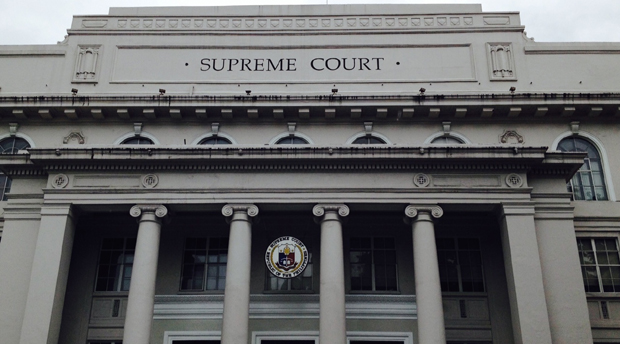Who are liable? SC issues ‘guidance’ but no names
In striking down the Disbursement Acceleration Program (DAP), the Supreme Court provided “guidance” but did not say who should be held liable for the controversial discretionary budget realignment scheme, the high court spokesperson explained on Friday.
The Nov. 19 decision on the Priority Development Assistance Fund (PDAF) similarly did not identify who should be brought to justice for the P10-billion pork barrel scam, even as it made the explicit directive to “all prosecutorial organs of the government to … investigate and accordingly prosecute” officials or private individuals involved in the anomaly, said the high court’s spokesperson Theodore Te.
“The DAP decision did not name names, neither did the PDAF decision. But in both, the Supreme Court gave guidance on how to determine accountability,” Te said in a post on his personal Twitter account on Friday.
Te released this statement on Friday amid speculation on who should take the fall for the controversial P150-billion DAP, with the groups who filed the petition against the DAP in the high court demanding that President Benigno Aquino III and Budget Secretary Florencio Abad be held criminally liable for the now illegal program.
Asserting good intentions
Malacañang has been asserting the good intentions behind the DAP, saying it was aimed at stimulating the economy. On Friday, the President rejected Abad’s attempt to resign to shield the government from growing criticism over the DAP.
In ruling the DAP unconstitutional, the Supreme Court singled out as illegal the transfer of executive branch savings to other branches of the government and the allocation of funds to programs outside the approved national budget, among others.
While it did not name names, the high court said the “authors, proponents and implementors of the DAP” may not invoke the doctrine of operative fact and escape liability for the program. The legal doctrine upholds the effects of an unconstitutional law before it was deemed to be so.
The high court said the principle could apply only to “programs, activities and projects that can no longer be undone, and whose beneficiaries relied in good faith on the validity of the DAP.”
It said the DAP’s sponsors could invoke the principle only if “there are concrete findings of good faith in their favor by the proper tribunals determining their criminal, civil, administrative and other liabilities.”
Usurping Congress power
High court justices noted in separate opinions that the President had usurped Congress’ exclusive power of the purse in implementing the program and found that Abad might have knowingly circumvented the law in crafting and enforcing the scheme, citing his familiarity with the workings of the national budget as a former lawmaker.
RELATED STORIES
SC declares parts of DAP unconstitutional
SC to DAP sponsors: Prove good faith
